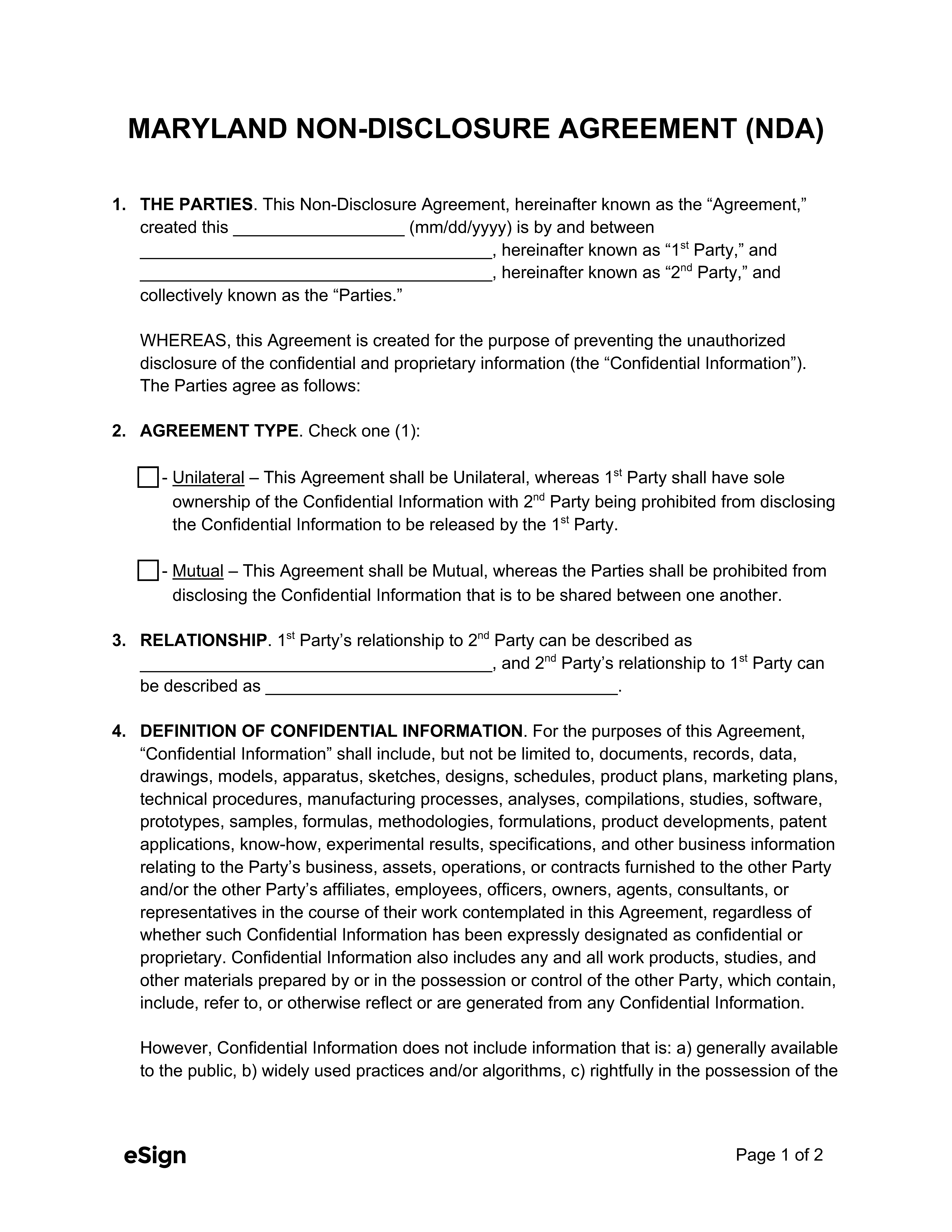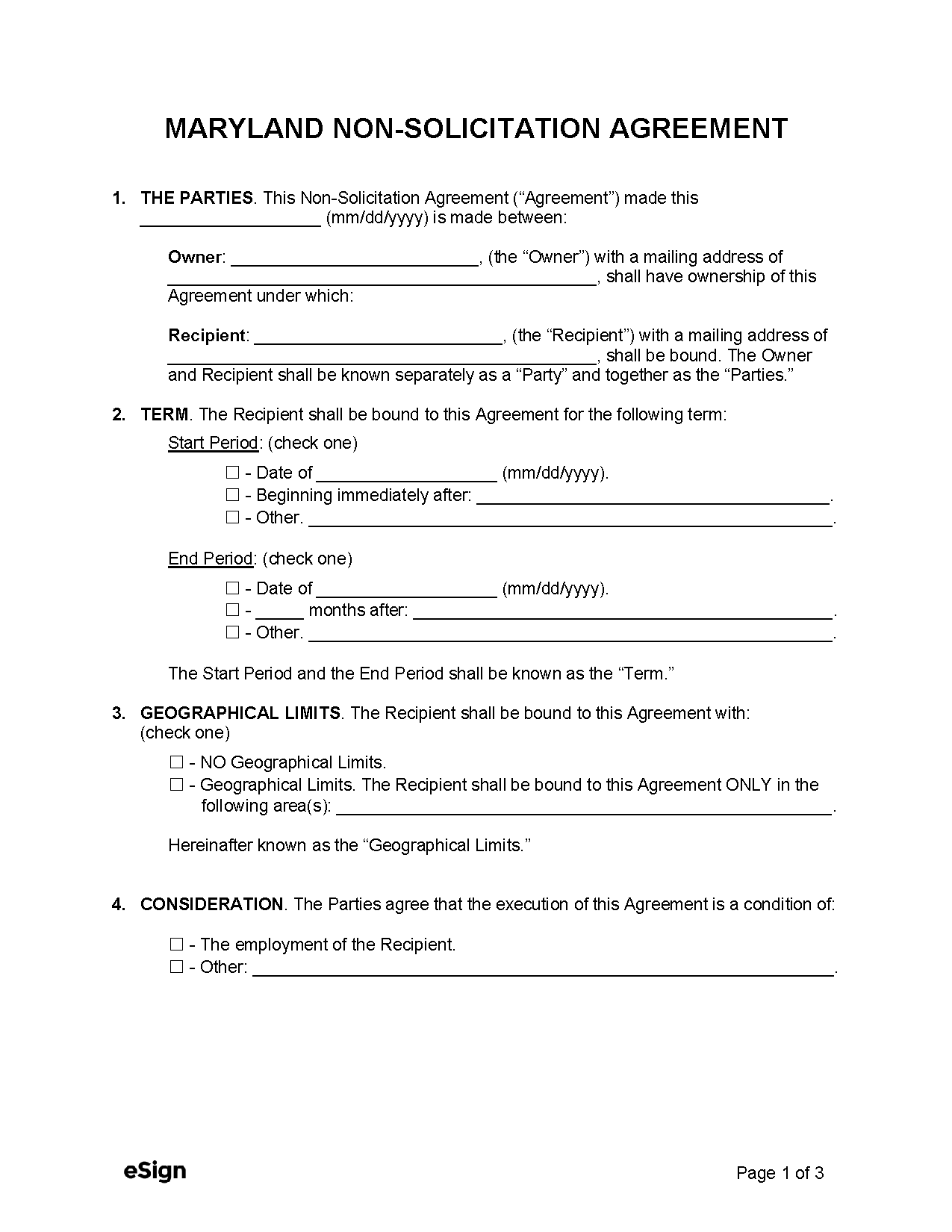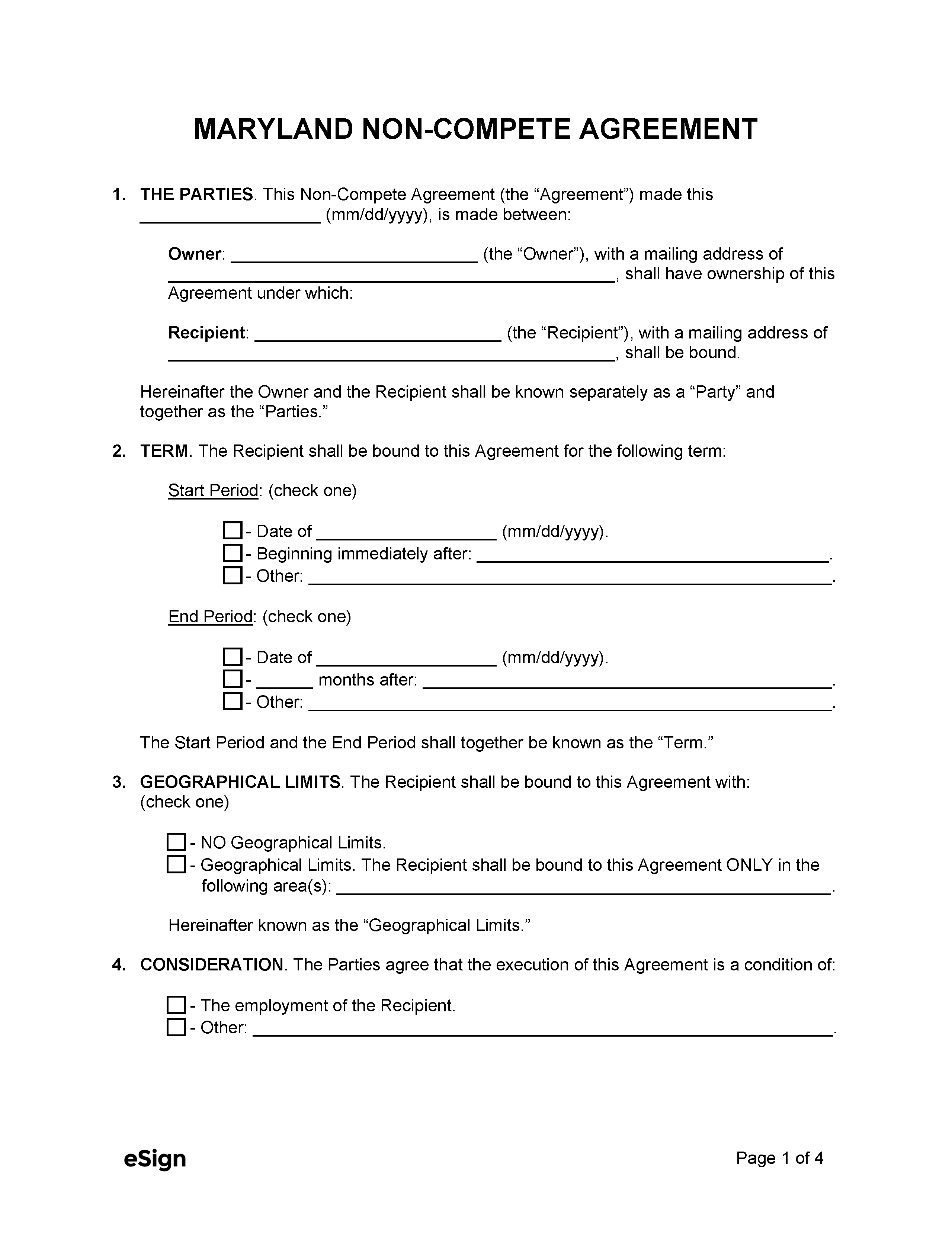However, the employer cannot create a non-compete agreement that is unreasonable and restricts the employee from finding gainful employment. NCAs must limit the restriction to a certain duration and geographical area, or they must have another means of avoiding undue hardship on the employee while protecting the employer’s business interests.
Contents |
Enforceability in Maryland
The state of Maryland generally permits the use of non-compete agreements, and they are enforceable against an employee as long as they are reasonable and adhere to the conditions below.
When it IS Enforceable
- General factors. Courts of law will uphold a non-compete agreement if the following factors are applied to the contract:
- Sufficient consideration is provided to the employee.
- It is provided in conjunction with or as a part of an employment agreement.
- It has a time and geographical limit that is only broad enough to protect the employer’s business interests.
- It does not unjustly restrain the employee.
- It does not interfere with the public interest.[1]
- Additional Factors. The following questions are also considered by courts to determine the enforceability of an NCA:
- Does the employee possess special skills and knowledge unique to a specific job or industry?
- Is the employee exploiting their personal relationship with the employer’s customers or clients?
- Is the non-compete necessary to avoid the misuse of the employer’s customer relationships, trade secrets, delivery/sales routes, or client/customer lists?[1]
When it’s NOT Enforceable
- Low-wage workers. Employers are prohibited from making an employee sign a non-compete agreement if they earn a wage that is equal to or less than $15/hr or $31,200/year. This does not apply to NCAs that aim to protect client/customer information.[2]
- Attorneys. Restrictive agreements against lawyers are prohibited unless they pertain to retirement benefits or the sale of a law firm.[3]
Maximum Time Period
The reasonableness of a non-competes time limit is dependent on all aspects of the case.[4] In one case, the court determined that a fair time restriction is the amount of time it takes to reconnect with the clients and customers that the employee previously dealt with on behalf of the employer.[1] There are several situations where courts looked favorably upon NCAs with 2-year limits[4] but there is no fixed temporal limit that can be applied across the board.
Geographical Area
The size of the geographical restriction implemented by an NCA also greatly depends on other factors, but Maryland courts won’t usually enforce an NCA if the limit is beyond the employer’s locations of business and customer base.[4] It’s common for the range to include a specific number of counties[4] or a radius around a city or multiple cities,[6] but at other times the scope can be far-reaching.
Courts have enforced non-competes where the employer prohibited competition in all of the US, Canada, and Mexico. This was considered acceptable because a 2-year time limit was implemented and the court felt the extensive geographical range was necessary to protect the employer’s legitimate business interests.[7]
Consideration
Sufficient consideration must be provided by an employer for a non-compete contract to be equitable. The state of Maryland considers an offer of employment to be adequate. Continued employment by itself is generally not sufficient, but continued employment for a significant period of time beyond the threat of discharge should be acceptable.[8] Change in terms and conditions of employment, such as alternative compensation, has also been seen as an accepted form of consideration.[4]
Sources
- Becker v. Bailey, 268 Md. 93, 299 A.2d 835 (Md. 1973)
- § 3–716
- Md. R. Att’y 19-305.6
- Ruhl v. F. A. Bartlett Tree Expert Co., 245 Md. 118, 225 A.2d 288 (Md. 1967)
- Holloway v. Faw, Casson & Co., 319 Md. 324, 349-53, 572 A.2d 510, 523-24 (Md. 1990)
- NaturaLawn of America, Inc. v. West Group, LLC, 484 F. Supp. 2d 392, 399-400 (D. Md. 2007)
- Nat’l Instrument, LLC v. Braithwaite, No. 24-C-06-004840, 2006 WL 2405831, at *6 (Md. Cir. Ct. June 5, 2006)
- Simko, Inc. v. Graymar Co., 55 Md. App. 561, 567, 464 A.2d 1104, 1106 (Md. Ct. Spec. App. 1983)
- Deutsche Post Global Mail, Ltd. v. Conrad, 292 F. Supp. 2d 748, 754 (D. Md. 2003)
Related Forms (2)

Download: PDF, Word (.docx), OpenDocument

Download: PDF, Word (.docx), OpenDocument
